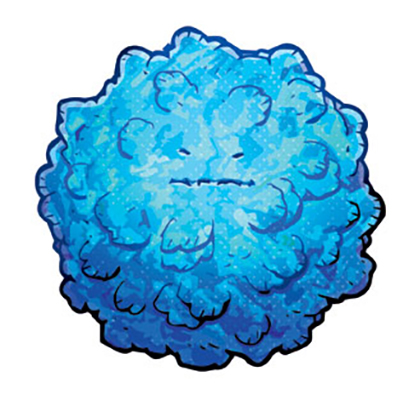By continuing your visit to this site, you accept the use of cookies.
Learn + I agreeTBE virus

A name that already says a lot
The Tick-borne encephalitis1 virus is, as its name indicates, a virus transmitted by ticks. It is also called early summer meningoencephalitis (ESME) virus since most cases occur in rural areas during early summer season.
The TBE virus is transmitted through the Ixodes ricinus tick, which is present throughout Europe, Russia, and Asia. The whole Swiss plateau is concerned by the presence of this virus and 0.5 to 3% of ticks are infected. To this day, there has been no observation of TBE-carrying ticks above 1000 meters altitude.
A disease with different degrees of severity
The TBE virus causes a disease that can have two phases. During the first phase (1 to 2 weeks after the tick bite), there are no symptom or flu-like symptoms (fever, fatigue, headache). For most of the infected people, the disease stops there.


However, in about 10% of affected people, the disease enters a second phase and neurological symptoms (headache, excessive sensitivity to light, dizziness, concentration and walking disorders) appear. These can last for weeks, even months. Among these people, the mortality rate is of 1% and there are no specific treatments available. However, in children the disease is usually benign.
The risk of a serious disease after being bitten by a tick infected with the TBE virus exists, but it’s slim. In Switzerland, there are about 150 to 200 cases of encephalitis per year (Numbers from FOPH 2017). After a tick bite has occurred in a risky area, one person out of 1000 to 5000 will develop a meningoencephalitis2 with neurological symptoms.

No antibiotics but a vaccine
Since a virus causes Tick-borne encephalitis, it cannot be cured with antibiotics3. Thankfully, there is a safe and effective vaccine. It is recommended by by the federal office of public health by the age of six to all people living or staying even temporarily in risks areas and all those living working in the forest (lumberjacks, Forest Rangers).
Encephalitis1 = Acute inflammation of the brain, usually caused by a virus.
Meningoencephalitis2 = Simultaneous inflammation of the brain and meninges, which are the membranes around the brain and spinal cord.
Antibiotic3 = A drug which allows to kill bacteria or at least to stop their growth. Antibiotics act against bacteria, but do not help treat diseases caused by viruses and parasites.
